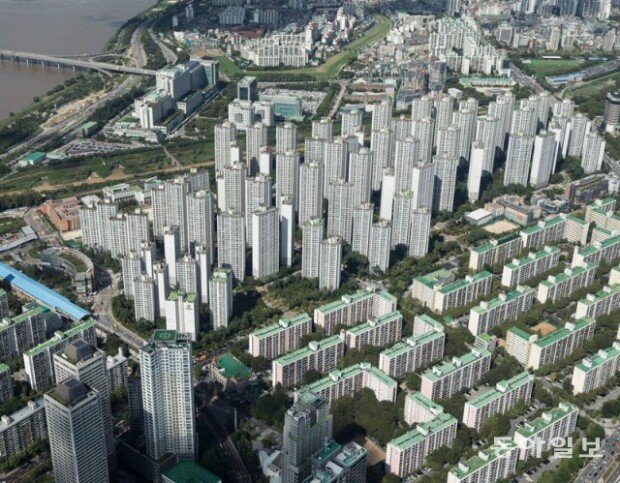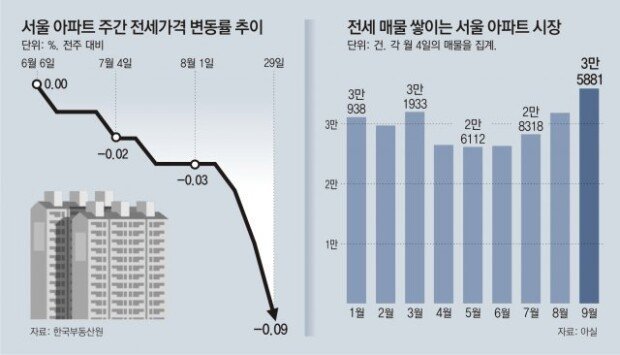Tenants unwilling to renew contracts unless rent deposit is lowered
Tenants unwilling to renew contracts unless rent deposit is lowered
Posted September. 05, 2022 07:53,
Updated September. 05, 2022 07:53


A resident surnamed Kim of an apartment of the area for the exclusive use of 51m² in Wirye New Town on a jeonse contract (home rental with lump sum key deposit) requested notarization from the landlord who asked whether the right to request the renewal of a contract would be used prior to contract renewal in December. The notarization is to guarantee that the landlord will return part of the rent deposit upon contract renewal as the jeonse prices of nearby apartment complexes decreased by 50 million won from two years ago. “I had to sign a contract at a high price because there weren’t enough apartment homes available in the market two years ago. However, there are quite many available for jeonse these days. I would move to a cheaper place if the landlord doesn’t agree.”
As jeonse demand decreases and jeonse prices continue to fall, concerns for the ‘reverse jeonse challenge,’ which refers to a situation where a landlord cannot return rent deposit to a tenant even after the contract period ends, are growing. In particular, tenants residing in places with high jeonse prices are asking landlords to return part of rent deposits for decreasing prices. This is a result of cheaper jeonse homes abundant in the market and landlords’ difficulties with finding new tenants.
According to Asil, a real estate bid data company, on Sunday, the number of apartment homes available for jeonse contracts in the market increased 12.9 percent from a month ago to 35,881 as of Sunday. As there are many jeonse homes available in the market, the jeonse prices of apartments in Seoul have not risen for 32 consecutive weeks after a 0.01 percent increase in the third week of January.
“The jeonse market is 180-degree opposite of one to two years ago,” said Korea Investment & Securities’ real estate team manager Ahn Sung-yong. “As the base rates are likely to increase continuously, the downward trend of jeonse prices will be maintained at least until the first half of next year.”
soon9@donga.com



![“잠시 맡깁니다” 소방서 앞 커피 인증…시민들의 색다른 응원[e글e글]](https://dimg.donga.com/c/138/175/90/1/wps/NEWS/IMAGE/2026/02/13/133361503.3.jpg)


![[단독]국힘 서울 당협위원장 20여명 “배현진 징계 반대” 장동혁 면담 요청](https://dimg.donga.com/c/138/175/90/1/wps/NEWS/IMAGE/2026/02/13/133361208.1.jpg)
